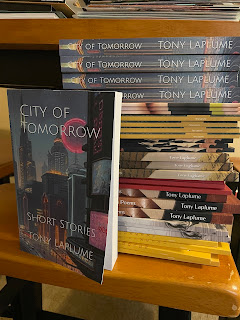Occasionally I'll fill out a year quite inadvertently with a running theme in what I'm reading. One year I read a number of adaptations of The Iliad, and that was My Iliad Year. Another year I read all of L. Frank Baum's Oz books, and that was My Oz Year. This year I ended up reading a fair bit about the American Civil War, and so it was My Civil War Year.
Because I, ah, tend to accumulate a lot of books, most of 'em end up waiting a fair bit of time to actually be read, and that's what happened to The Memoirs of Ulysses S. Grant, which I picked up at Target a number of years back from a discount section, someone having ordered but chosen not to buy it. It was something I wanted to read anyway, so I bought it, and it sat on a shelf, shifting ever onward toward the reading rotation, and this was its lucky year.
I could talk a bit about Grant here now, what's actually in his Memoirs (how he ended up writing them and what history has generally said about them is pretty well known at this point, so I needn't spend time on that), but suffice to say I ended up greatly impressed with his thoughts on the campaigns he fought, his meticulous progress and sometimes thrilling maneuvers. Part of the myth of the Civil War we still struggle to untangle today is that Grant more or less stumbled toward Appomattox where Lee cordially surrendered in the courthouse, every bit his superior, Grant being a hopeless drunk who just happened to be the last one holding the ball for the Union, and destined to be a hapless president, later, mired in corruption...
Well, the Memoirs only cover the war (and his life preceding it), not the presidency, alas, but I happen to believe a fair bit of mythmaking surrounds the presidency, too. The editors of the edition I read even suggest Grant of being disingenuous by failing to bring up his drinking problem, so...yeah. Not a lot of partiality even in his own book (the introduction also claims his health affected his ability to maintain enough focus for a completely clean accounting, no evidence for which I found, either). Bias runs deep, folks.
Anyway, so later I finally read The Killer Angels, the classic novel that later inspired the film Gettysburg, which I also watched, to remind myself whether or not it deserves its reputations(s) (both serious and ridiculous, from enthusiasts to viewers merely mocking fake beards). I fell very deeply in love with Angels as I read it, a truly elegiac, impartial, deeply human look at both sides of the war. As someone who grew up in Maine, I knew the first effect of Angels was to sanctify Joshua Chamberlain, which carried over if not still more strongly in Jeff Daniels' portrayal in the film. Watching Gettysburg back, it's still a hard argument to dismiss, by the way. Angels features an America we've allowed increasingly to fade into the past, where partisanship does not have to define someone, where sides only matter if you don't care about the person caught up in them. It is an experience every American ought to have, and I am prepared to call it one of the great works of American literature.
I also read a book about politics during the war, specifically how Democrats comported themselves in the north. The author tried very hard to push a "loyal opposition" narrative, but I can't help but conclude the problems they posed are as badly felt today as they were then. And besides these three, I read an entry in Bernard Cornwell's Civil War series (never completed), and...found him very much the opposite of Michael Shaara, and that's all I really need to say about that.
I followed all that up with a documentary series about the war, and that was satisfying.
Aside from fiction, and sometimes memoirs of one variety or another, my main reading interest has long been history. I have David McCullough's 1776 on rush reading order from a very recent thrift store purchase (the American Revolution is another amateur hobby of mine), and from a library sale I included several tasty pieces of literature in that general extraction. What can I say? One of them is a journalist's survey of much of the past century. I might just have to hopscotch that one, too...I only paused Memoirs and Killer Angels because I didn't know their actual worth, only what is generally said about them. Both are far, far better than suggested. Both are essential, as it turns out. It was my great good fortune to read both this year.


